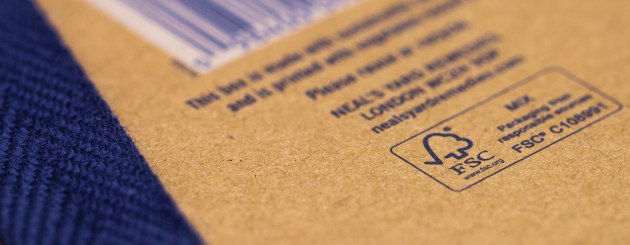Joe Cook, vice-president of Delta Global, provider of sustainable packaging for luxury brands, warns that the spike in single-use plastics during the pandemic, due to PPE usage and fears of contamination, should not excuse businesses from their sustainability obligations.
Cook says that although significant progress has been made in the fight against plastic, such as states banning plastic straws and the production of microbeads, the response to Covid has necessitated the widespread reintroduction of disposable plastics.
The former executive director at Estee Lauder warns that reverting back to old habits would be a commercial and ethical disaster, especially for the beauty industry.
In 2018, beauty brands were responsible for around 120 billion units of plastic packaging, according to UN estimates, which claimed a maximum of nine per cent was recycled, 12 per cent incinerated, while the remaining 79 per cent was put into landfill.
According to a Forbes white paper, 62 per cent of Gen Z prefer purchasing from sustainable brands.
The good news is that many in the beauty industry have made important changes to plastic packaging usage, such as Waleda, who have entirely cut microplastics and liquid plastics from its packaging since 2015.
“By adapting its packaging to market and consumer expectations of sustainable retail practices, Waleda has been able to flourish, showing considerable year-on-year growth,” Cook explains.
“Several consumer reports have found that Millennials and Gen Z demand sustainable retail practices – and are willing to pay more for it. This is in polar opposition to the consumer preferences of Baby Boomers.
“But my concern is, with the return of what has been called unnecessary single-use plastics during the pandemic, brands will cite increased costs, safety, and a new inability to recycle as reasons to forfeit sustainability commitments.”
Cook highlights three key areas beauty brands can adopt to continue its eco-friendly commitments to packaging pre-pandemic.
Sustainable Packaging
Cook says complete sustainability is where consumers and the market are heading – and where the beauty industry must lead, with the use of bioplastics and plant-based packaging being highlighted.
“As we consider the future of eco-friendly boxing, and how the beauty industry can future-proof its packaging, we are encouraged by the progress of bioplastics and plant-based packaging,” says Cook.
“While bioplastics are still in the nascent stages of development, there are some interesting options currently on the market. The best of these exceeded recyclability by being both compostable and biodegradable.
“However, cost-effectiveness and durability are not quite where they need to be. A vigorous development programme is required if bioplastics are to become the industry standard.”

Refills
In the short-term, Cook suggests refills as a practical opportunity to shift to sustainability. Many in the industry, such as Neal’s Yard Remedies and The Body Shop, have been notable adopters.
According to Cook, the simple packaging switch can result in significant reductions, pointing to L’Occitane, who reported cutting 121 tonnes of plastic pollution and experienced a packaging decrease of 98 per cent.
“Refills have the obvious benefit of reducing the total packaging needed to be manufactured by businesses and purchased by customers,” Cook continues.
“The most effective use of refillables are those which can be replenished in-store, meaning zero additional packaging purchases are required.
“If beauty brands now hold sincere concerns regarding the safety of their packaging, refill pouches possess superior protection from bacteria, moisture, oxygen and sunlight. In addition to being pandemic-friendly, they also elongate shelf-life.”
Buy Backs
Finally, Cook turns to incentivised recycling as an example of successful and popular schemes, especially when it comes to plastic bottles, and typically involving exchanging recyclable, empty packaging for coupons or vouchers.
“John Lewis introduced its BeautyCycle initiative in 2019 – in which five empty packages are exchanged for a monetary deduction from future purchased – and today is one of the most successful buy back schemes introduced by any retailer,” claims Cook.
“Since it began, BeautyCycle has saved over 231,000 products going to landfill. That’s over 50,000 customer donations.
“If each beauty retailer introduced such a scheme tomorrow, the increase in single-use plastics could swiftly be atoned for.”





